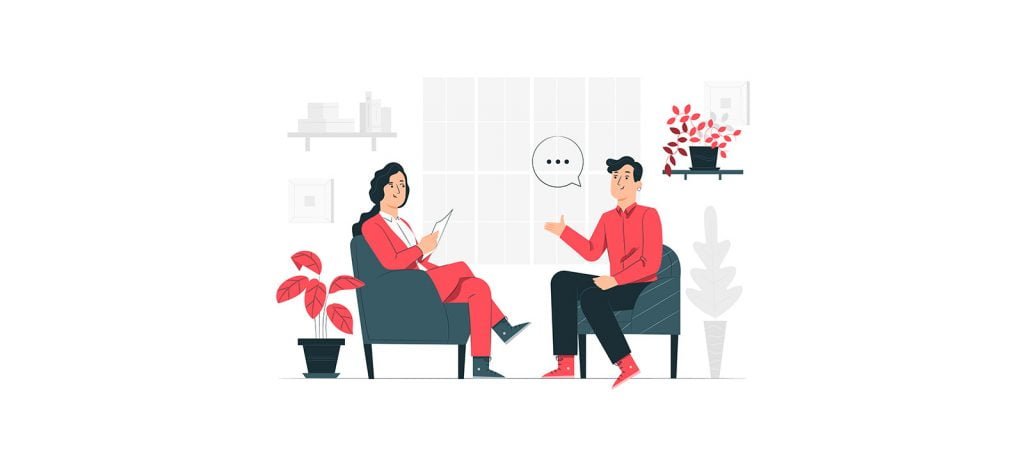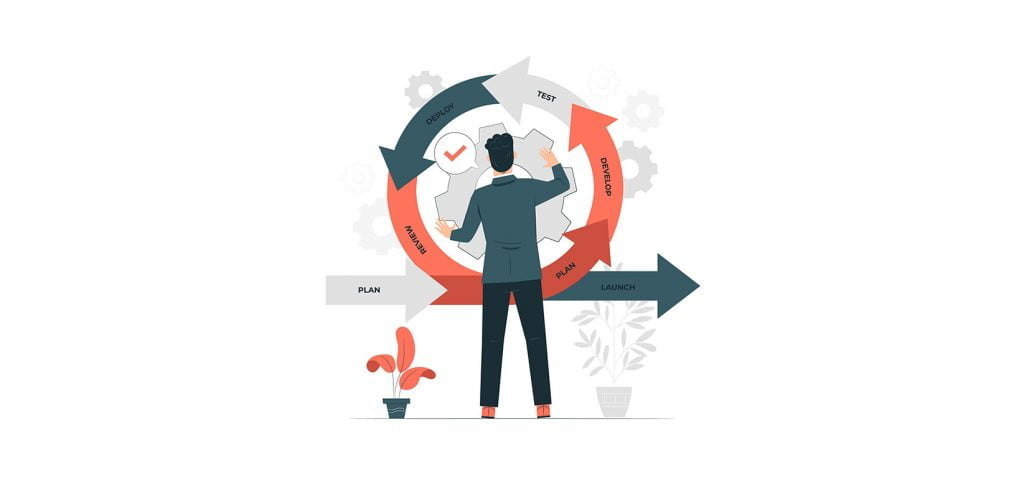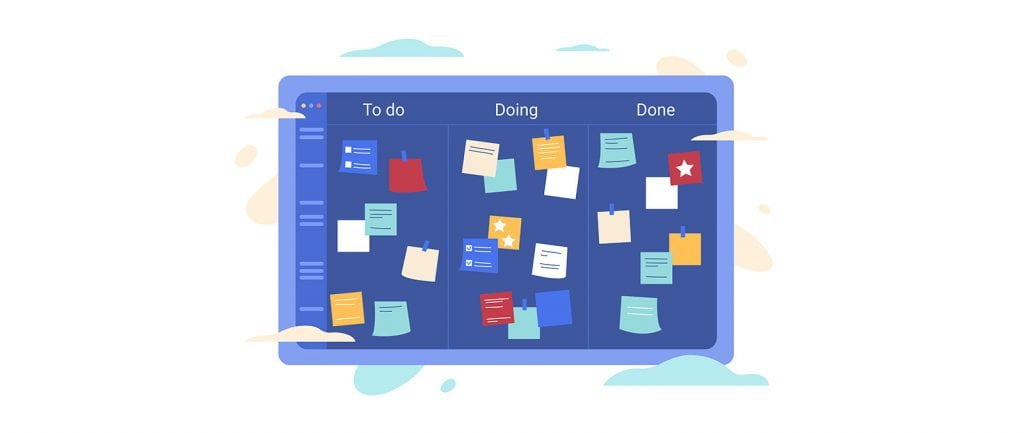Какие вопросы нужно задать работодателю на собеседовании, а какие не стоит?

Собеседование на работу — это двусторонний процесс. Важно не только отвечать на вопросы потенциального работодателя, но и задавать свои вопросы. Эта статья посвящена тому, какие вопросы IT-специалистам следует задавать на собеседовании и как эти вопросы могут помочь вам выделиться среди других кандидатов.
Подготовка к собеседованию — больше, чем просто пересмотр своего резюме и проработка типовых вопросов. Она включает в себя исследование компании, понимание роли и формулирование вопросов, которые помогут вам лучше понять, подходит ли вам данная позиция.
Почему важно задавать вопросы
Задавая вопросы, вы показываете свой интерес к компании и должности, выражаете свое стремление узнать больше и показываете свою способность к критическому мышлению. Это также дает вам возможность узнать больше о компании и должности, чтобы принять обоснованное решение.
Вопросы, которые вы задаете, также являются отражением ваших ценностей, интересов и приоритетов. Это может помочь вам выделиться среди других кандидатов, так как это показывает, что вы цените не только возможность работы, но и качество рабочего места и вашего возможного взаимодействия с компанией.
Какие вопросы следует задавать
О позиции
Вопросы о конкретных обязанностях и ожиданиях
- Какие основные задачи и обязанности связаны с этой ролью?
- Какие ключевые навыки и опыт вы ищете в идеальном кандидате?
- Как выглядит стандартный рабочий день на этой позиции?
Вопросы о том, как будет оцениваться успех
- Какие критерии используются для оценки производительности на этой должности?
- Есть ли у вас система KPI или других метрик?
- Какие конкретные результаты вы бы хотели видеть от этой роли в течение первых шести месяцев?
Вопросы о том, как выглядит типичный день на этой позиции
- Как выглядит типичный рабочий день для этой роли?
- Каковы ожидания по гибкости графика и работе вне офиса?
- Какие инструменты и технологии чаще всего используются в этой роли?
О команде
Вопросы о структуре команды и роли каждого участника
- С кем мне предстоит тесно работать?
- Какие роли и обязанности у членов моей будущей команды?
- Каков процесс принятия решений в команде?
Вопросы о культуре в команде и общем рабочем окружении
- Как бы вы описали культуру команды?
- Какой стиль управления преобладает в команде?
- Как команда отмечает успехи и справляется с неудачами?
О компании
Вопросы о ценностях компании
- Какие основные ценности компании?
- Как эти ценности отражаются в повседневной работе?
- Как компания поддерживает развитие сотрудников?
Вопросы о стабильности и перспективе роста компании
- Какие основные достижения и вызовы компания пережила в последние годы?
- Каковы планы компании на ближайшие 5 лет?
- Как вы видите роль этой позиции в контексте этих планов?
Вопросы о внутренних системах профессионального развития и карьерного роста
- Какие возможности для профессионального роста и развития есть в компании?
- Какие курсы, тренинги или сертификации компания предлагает своим сотрудникам?
- Как вы помогаете сотрудникам достигать их карьерных целей внутри компании?
Как не стоит задавать вопросы
Вопросы, которые могут создать негативное впечатление
- Вопросы о размере зарплаты или льготах до обсуждения предложения о работе.
- Вопросы, свидетельствующие о том, что вы не удосужились изучить информацию о компании и должности.
- Вопросы, показывающие, что вы больше заинтересованы в выгодах, чем в самой работе.
Вопросы, на которые можно найти ответы в открытом доступе
- «Чем занимается ваша компания?» — Это показывает неподготовленность. Лучше спросить о специфических проектах или стратегиях компании.
- «Кто ваш CEO?» — Общедоступная информация, которую следует знать заранее.
- «Когда была основана компания?» — Также общедоступная информация.
Вопросы, связанные с политикой, религией и личной жизнью сотрудников
- «Какие политические взгляды поддерживаются в вашей компании?» — Это нерелевантно для большинства рабочих мест.
- «Какие религии практикуются сотрудниками?» — Это личная информация и не имеет отношения к работе.
- «Какие отношения с семьей у сотрудников?» — Неуместно и нарушает личные границы.
Как грамотно формулировать вопросы
Рекомендации по формулировке вопросов
- Будьте конкретными: Ваши вопросы должны быть точными и отражать ваши интересы и важные для вас аспекты.
- Используйте открытые вопросы: Это поможет получить более подробную информацию, а не просто «да» или «нет».
- Спрашивайте об одной вещи за раз: Слишком сложные вопросы могут запутать собеседника и у вас может не получиться нужного ответа.
Примеры эффективных вопросов и анализ, почему они хороши
| Вопрос | Зачем этот вопрос полезен |
|---|---|
| «Как выглядит процесс роста и развития в этой роли?» | Свидетельствует о вашем стремлении к постоянному самосовершенствованию. |
| «Какие технологии и инструменты вы используете и почему?» | Демонстрирует вашу готовность освоить необходимые инструменты для работы. |
| «Можете ли вы рассказать о команде, с которой я буду работать?» | Выявляет вашу заинтересованность в том, с кем предстоит работать. |
| «Какие большие проекты или вызовы ожидаются в ближайшем будущем?» | Показывает вашу готовность быть в курсе будущих задач и вызовов. |
| «Как вы поддерживаете профессиональное развитие сотрудников?» | Подчёркивает ваше желание развиваться и узнавать новое на рабочем месте. |
| «Какова культура компании и как она проявляется в повседневной работе?» | Высвечивает ваше понимание важности корпоративной культуры. |
| «Какие методики и процессы разработки вы используете?» | Указывает на ваш интерес к механизмам работы и готовность к адаптации. |
| «Есть ли у вас примеры недавних достижений или инноваций в компании?» | Акцентирует ваш интерес на успехах и инновационности компании. |
Несколько советов по поведению на собеседовании
Когда и как задавать вопросы
- Не стоит перебивать интервьюера: Дождитесь, пока он закончит свою мысль или задаст вопрос, прежде чем задать свой.
- Планируйте вопросы: Подготовьте вопросы заранее и постарайтесь встроить их в разговор, когда это уместно.
- Задавайте вопросы в конце собеседования: Многие интервьюеры предоставляют время в конце собеседования для ваших вопросов. Это ваш шанс получить дополнительную информацию.
Как вести себя во время ответов работодателя
- Показывайте внимание: Кивайте головой, поддерживайте контакт глаз и делайте заметки, если это необходимо.
- Покажите уважение: Не перебивайте и не спешите с ответами. Дайте собеседнику время на полноценный ответ.
- Относитесь с пониманием: Если работодатель не может ответить на некоторые вопросы из-за конфиденциальности или других причин, примите это с пониманием.
Как дать работодателю понять, что вы внимательно слушаете и цените получаемую информацию
- Используйте утверждающие фразы: «Понятно», «Интересно» и т.д. — такие фразы показывают, что вы внимательно слушаете.
- Сделайте повторение: Пересказывание ключевых моментов также подчеркнет вашу внимательность.
- Задайте дополнительные вопросы: Если вы задаете уточняющие вопросы, это показывает, что вы заинтересованы и включены в разговор.
Заключение
Подготовка к собеседованию — это не только об ответах на вопросы, но и о задавании правильных вопросов. Ваши вопросы показывают ваш интерес к позиции, компании и команде, а также помогают вам выделиться среди других кандидатов. Кроме того, вопросы помогают уточнить информацию, которую вы получили в ходе собеседования, и принять более обоснованное решение о том, хотите ли вы работать в этой компании.
Правильные вопросы могут повлиять на результаты собеседования и вашу карьеру. Они помогают установить двустороннюю связь, показать свою инициативу и глубоко понять компанию и роль, на которую вы претендуете. Больше того, они могут помочь вам определить, является ли компания подходящим местом для вас.
В конце концов, собеседование — это не только возможность для компании узнать о вас, но и для вас узнать о компании. Тщательная подготовка к собеседованию, включая подготовку вопросов, поможет вам лучше понять, что вы ищете в работе, и даст вам уверенность в том, что вы делаете информированный выбор. Не бойтесь задавать вопросы — это ваш шанс узнать все, что вам нужно для принятия правильного решения.
Дополните статью другими полезными советами или поделитесь собственным опытом в комментариях 📝






Комментарии